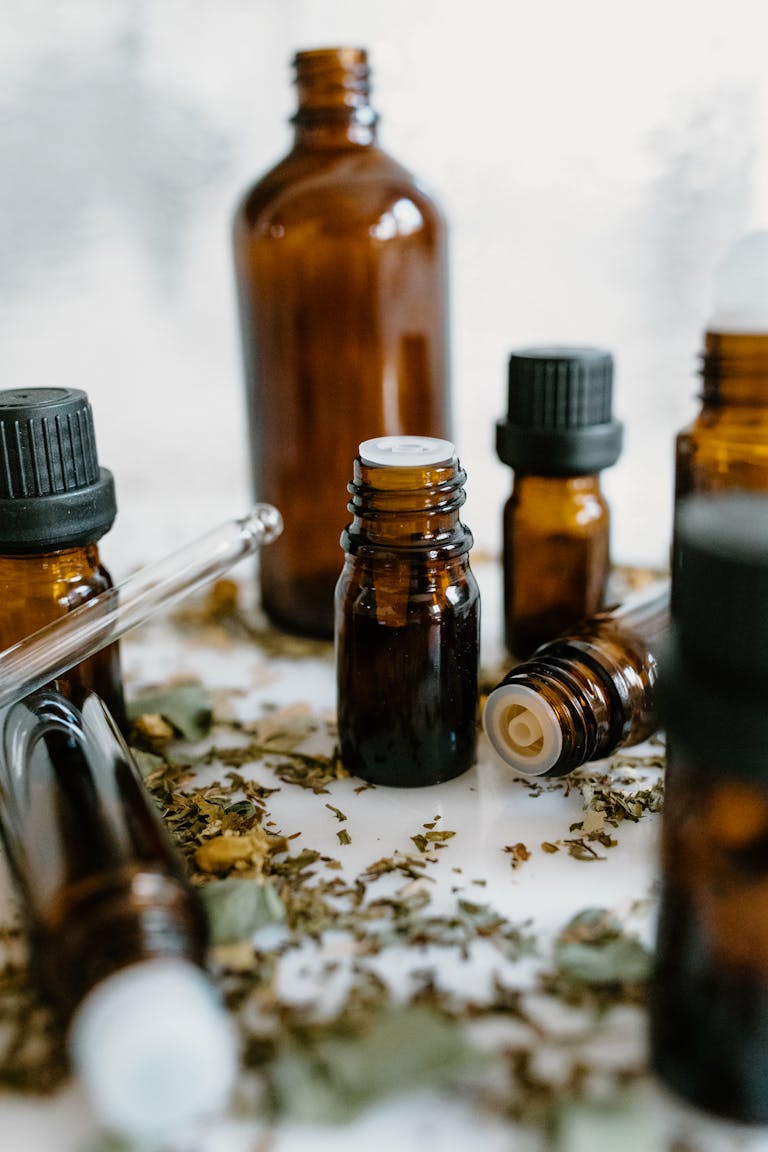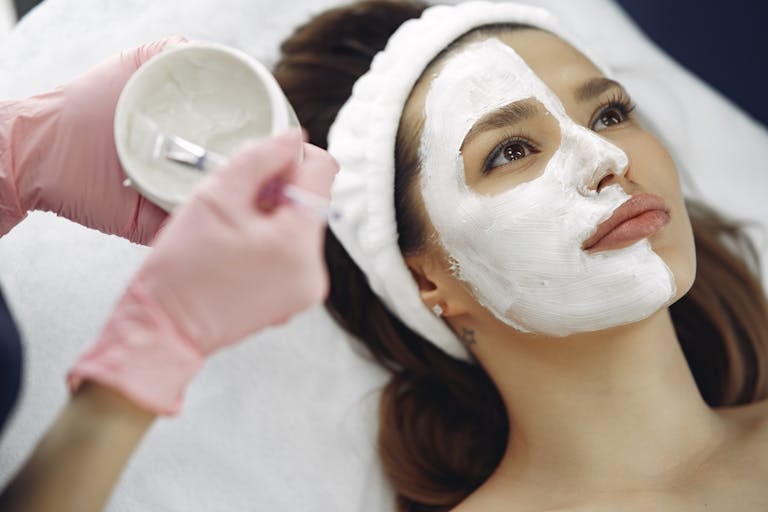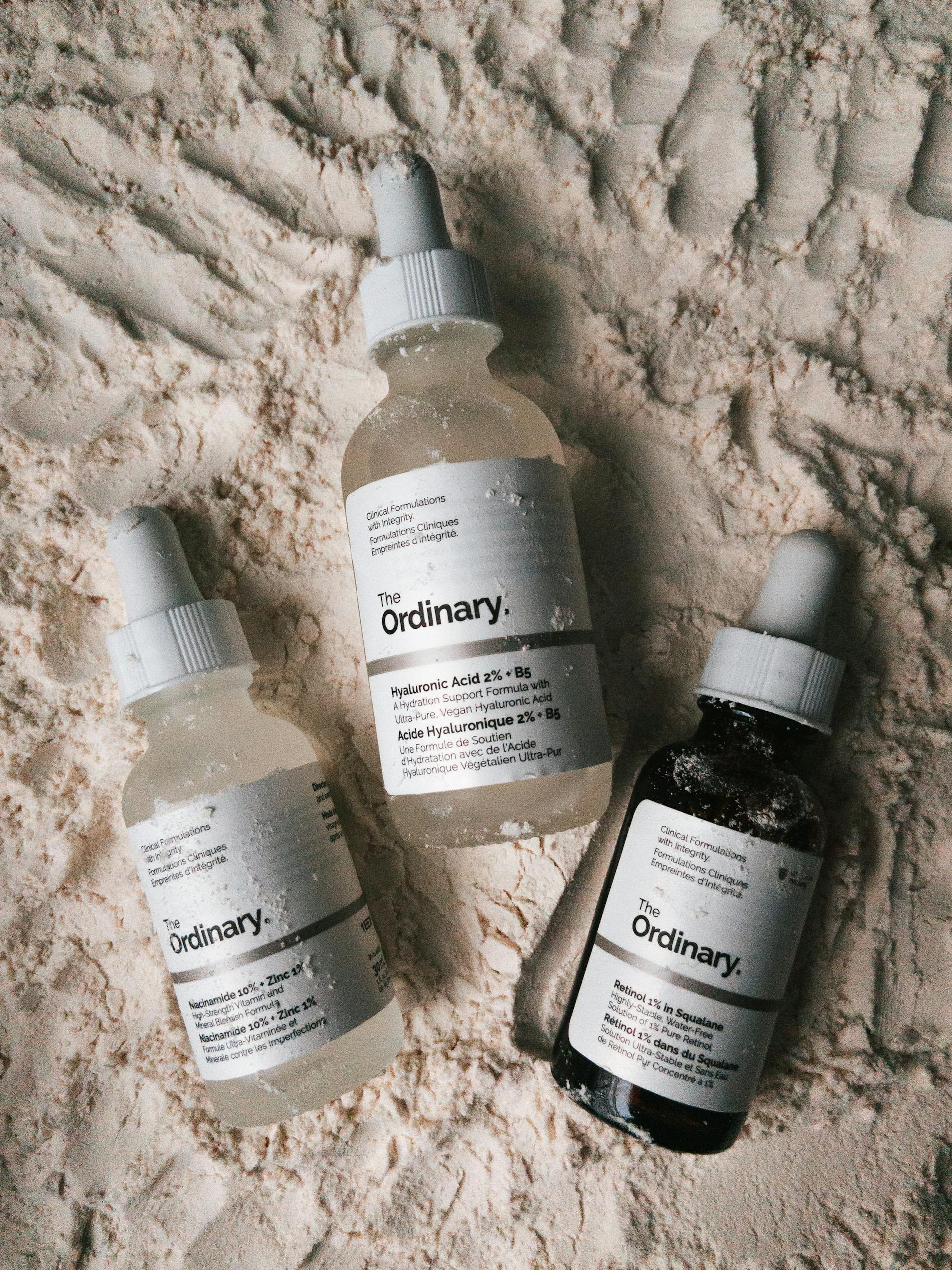
In the ever-evolving world of skincare, certain ingredients stand out for their remarkable efficacy and widespread acclaim. Hyaluronic acid has emerged as one such superstar, captivating beauty enthusiasts and skincare professionals alike. This naturally occurring substance has revolutionised the approach to achieving healthy, hydrated, and youthful-looking skin.
As consumers become increasingly aware of the importance of natural, effective skincare solutions, hyaluronic acid has taken centre stage. Its popularity isn’t merely a passing trend; it’s rooted in scientific evidence and tangible results. From its intense moisturising properties to its ability to smooth fine lines and wrinkles, hyaluronic acid benefits are both diverse and impressive.
In this article, we’ll explore the numerous advantages of incorporating hyaluronic acid into your skincare routine. We’ll uncover why this powerhouse ingredient has become a staple in natural skincare products and how it can transform your skin’s health and appearance. Whether you’re a skincare novice or a beauty aficionado, understanding the potential of hyaluronic acid is crucial for anyone seeking to optimise their skin’s vitality and radiance.
What is Hyaluronic Acid?
Hyaluronic acid, also known as hyaluronan or HA, is a clear, gel-like substance that occurs naturally in the human body. It belongs to a group of compounds called glycosaminoglycans, which are essential components of connective tissues. This remarkable molecule is found in high concentrations in our skin, eyes, and joints.
At its core, hyaluronic acid is a long chain of sugar molecules. Its structure allows it to bind and retain water molecules exceptionally well, which is the secret behind its powerful hydrating properties. In fact, hyaluronic acid is often referred to as “nature’s moisturiser” due to this unique ability.
In the skin, hyaluronic acid plays several crucial roles:
- Hydration: It helps maintain optimal moisture levels in the skin, keeping it plump and supple.
- Structure: It contributes to the skin’s overall structure and firmness.
- Nutrient transport: Hyaluronic acid aids in the transport of essential nutrients to skin cells.
- Wound healing: It plays a vital role in tissue repair and regeneration.
While our bodies naturally produce hyaluronic acid, the amount decreases as we age. This decline begins in our 20s and accelerates in our 40s and 50s, contributing to common signs of ageing such as decreased skin elasticity and the formation of wrinkles.
The hyaluronic acid used in skincare products can be derived from two main sources:
- Natural extraction: This involves isolating hyaluronic acid from animal tissues, typically rooster combs.
- Biofermentation: A more modern and increasingly popular method, this process uses bacteria to produce hyaluronic acid in laboratory conditions.
Both sources can provide effective hyaluronic acid for skincare use, though biofermentation is often preferred for its sustainability and suitability for vegans.
Understanding the nature and origin of hyaluronic acid helps to appreciate why it has become such a prized ingredient in natural skincare. Its ability to provide intense hydration without clogging pores or causing irritation makes it a versatile and valuable addition to many skincare formulations.
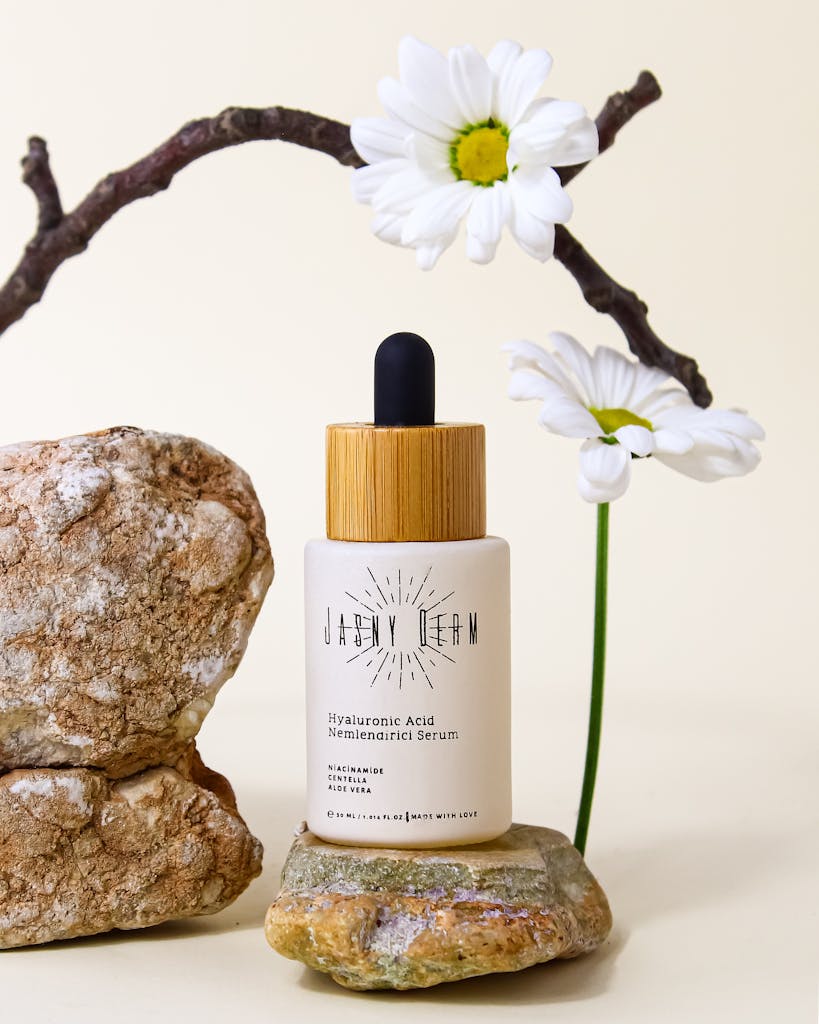
Hyaluronic Acid Benefits for Skin
- Intense Hydration: One of the most significant benefits of hyaluronic acid is its unparalleled ability to hydrate the skin. A single molecule can hold up to 1,000 times its weight in water, making it a powerful humectant that draws moisture into the skin.
This exceptional hydrating capacity means hyaluronic acid can provide deep, long-lasting moisture without leaving a greasy residue. When applied topically, it forms a protective layer on the skin’s surface, preventing water loss and maintaining optimal hydration levels throughout the day.
This intense hydration not only improves skin texture and appearance but also enhances the skin’s ability to defend against environmental stressors.
- Anti-Ageing Properties: As we age, our skin’s natural hyaluronic acid levels decrease, leading to a loss of moisture, elasticity, and volume. Topical application of hyaluronic acid can help replenish these levels, reducing the appearance of fine lines and wrinkles by plumping up the skin.
This plumping effect is particularly noticeable in areas prone to early signs of ageing, such as around the eyes and mouth. Moreover, hyaluronic acid’s hydrating properties help to improve skin elasticity, giving the face a more youthful, supple appearance.
Regular use can lead to a smoother, more radiant complexion, effectively turning back the clock on visible signs of ageing.
- Skin Barrier Support: Hyaluronic acid plays a crucial role in strengthening the skin’s natural barrier, which is essential for overall skin health. This barrier function helps to protect against environmental stressors such as pollution, UV radiation, and harsh weather conditions.
By reinforcing the skin barrier, hyaluronic acid helps to lock in moisture and other beneficial nutrients while keeping out harmful irritants. This protective action can reduce skin sensitivity, minimise inflammation, and prevent damage that could lead to premature ageing. A strong skin barrier also means better retention of other skincare products, enhancing their efficacy and providing a more comprehensive skincare routine.
- Gentle and Suitable for All Skin Types: Unlike some active ingredients that can cause irritation or adverse reactions, hyaluronic acid is exceptionally gentle and well-tolerated by most skin types, including sensitive skin. Its natural presence in the human body means that allergic reactions are extremely rare.
This universal compatibility makes hyaluronic acid an ideal ingredient for those with sensitive, acne-prone, or reactive skin who may struggle with other hydrating ingredients. It’s non-comedogenic, meaning it won’t clog pores, making it suitable for oily and combination skin types as well.
The versatility of hyaluronic acid allows it to be incorporated into various skincare products, from lightweight serums to rich creams, catering to different skin needs and preferences.
- Wound Healing: Research suggests that hyaluronic acid can speed up wound healing by regulating inflammation levels and signalling the body to build more blood vessels in the damaged area.
This property makes it beneficial not only for minor cuts and scrapes but also for more serious skin concerns such as sunburn, eczema, and even surgical wounds. Hyaluronic acid creates a moist environment that promotes faster healing and reduces the risk of scarring. It also has antimicrobial properties, which can help prevent infection in wounds.
Beyond physical wounds, hyaluronic acid can aid in the healing of skin damaged by acne, helping to reduce redness and promote faster recovery of blemishes.
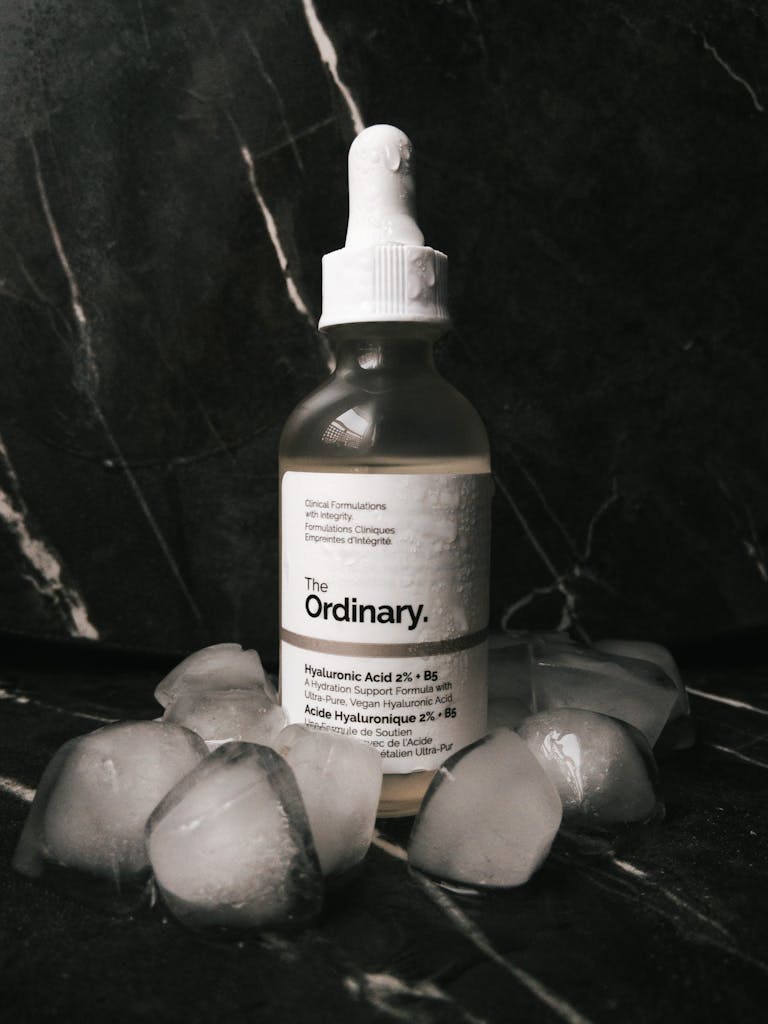
Incorporating Hyaluronic Acid into Your Skincare Routine
Harnessing the full potential of hyaluronic acid requires more than just slathering it on haphazardly. To maximise its benefits, consider the following strategies:
Choose the Right Formulation: Hyaluronic acid comes in various forms, from serums to creams and even supplements. Serums, with their lightweight texture and high concentration of active ingredients, are often the most effective for delivering hyaluronic acid to the skin. However, don’t discount moisturisers and creams, which can provide additional hydrating ingredients to complement the hyaluronic acid.
Look for Different Molecular Weights: Not all hyaluronic acid is created equal. Products containing a mix of molecular weights can offer more comprehensive benefits. Low molecular weight hyaluronic acid penetrates deeper into the skin, while higher weights work on the surface to provide immediate hydration. Look for products that specify they contain multiple molecular weights for optimal results.
Apply to Damp Skin: Here’s a pro tip: apply your hyaluronic acid product to slightly damp skin. This technique gives the molecule plenty of water to bind to, enhancing its hydrating effects. After cleansing, leave your skin a bit moist or mist it lightly before applying your hyaluronic acid product.
Layer Properly: In your skincare routine, apply hyaluronic acid after cleansing and toning, but before heavier creams or oils. This allows it to penetrate the skin effectively while still being sealed in by subsequent products.
Don’t Forget Sunscreen: While hyaluronic acid itself doesn’t increase sun sensitivity, well-hydrated skin is always better protected against UV damage. Always follow your morning hyaluronic acid application with a broad-spectrum sunscreen.
Pair with Complementary Ingredients: Hyaluronic acid plays well with most other skincare ingredients. It can be particularly effective when paired with antioxidants like vitamin C, which can help protect the skin from free radical damage while hyaluronic acid hydrates.
Consider Frequency: Most people benefit from using hyaluronic acid twice daily, morning and night. However, those with very dry skin might find additional applications throughout the day beneficial, especially in harsh weather conditions.
Don’t Neglect Other Hydrating Practices: While topical application is crucial, don’t forget that skin hydration is also an inside job. Drink plenty of water, eat a balanced diet rich in fruits and vegetables, and consider using a humidifier in dry environments to support your skin’s hydration levels from multiple angles.
Be Patient and Consistent: Like most skincare ingredients, hyaluronic acid requires consistent use to see optimal results. While you may notice immediate plumping and hydration, long-term benefits such as improved skin texture and reduced fine lines will take time to develop. Stick with it, and your patience will be rewarded.
By thoughtfully incorporating hyaluronic acid into your skincare routine, you can unlock its full potential, paving the way for plump, hydrated, and youthful-looking skin.
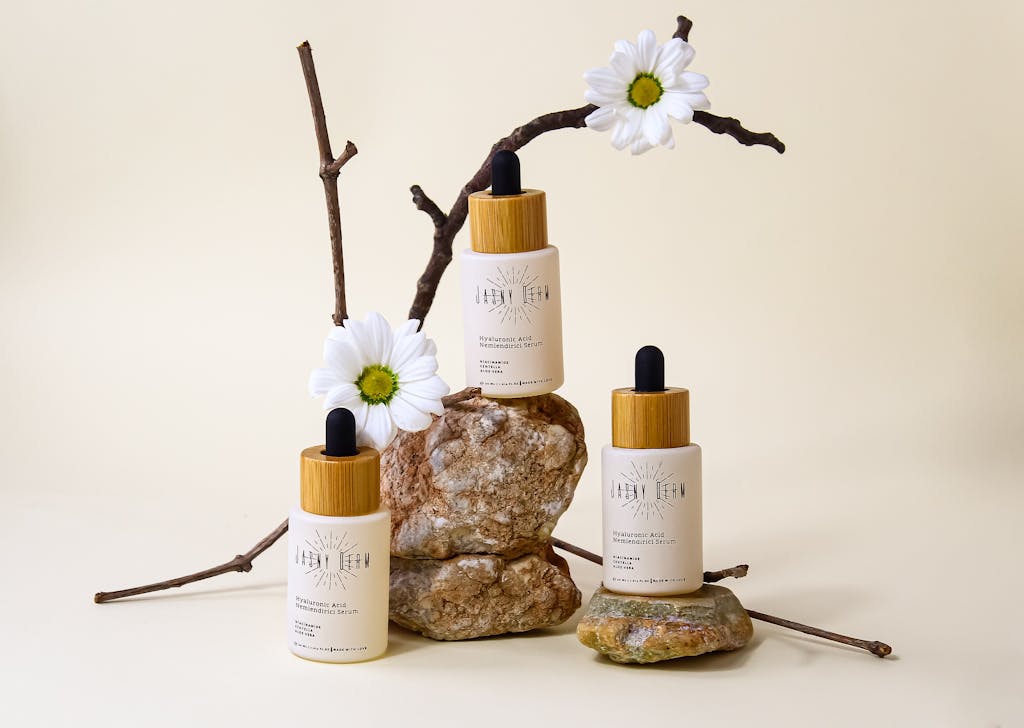
Natural Sources of Hyaluronic Acid
While synthetic hyaluronic acid is widely used in skincare products, there are numerous natural sources that can help boost your body’s hyaluronic acid levels. Incorporating these foods into your diet can support your skin’s health from the inside out:
- Bone Broth: Rich in collagen and hyaluronic acid, bone broth is a nutritional powerhouse. Slow-simmering bones, particularly from chicken or beef, releases these beneficial compounds into the broth. Regular consumption may help support joint health and skin elasticity.
- Soy-Based Foods: Soya and its derivatives, such as tofu, tempeh, and edamame, contain plant-based oestrogens that may stimulate hyaluronic acid production in the body. These foods also offer protein and other nutrients beneficial for overall skin health.
- Citrus Fruits: Oranges, lemons, and grapefruits are excellent sources of naringenin, a flavonoid that can inhibit the breakdown of hyaluronic acid in the body. Additionally, their high vitamin C content supports collagen production, working synergistically with hyaluronic acid for skin health.
- Leafy Greens: Vegetables like kale, spinach, and collard greens contain magnesium, which is crucial for the production of hyaluronic acid. They’re also rich in antioxidants that protect the skin from free radical damage.
- Root Vegetables: Starchy root vegetables like sweet potatoes and carrots are rich in vitamin A, which can boost the body’s production of hyaluronic acid. They also provide beta-carotene, another potent antioxidant for skin health.
- Nuts and Seeds: Almonds, peanuts, and pumpkin seeds are excellent sources of zinc, a mineral that plays a role in hyaluronic acid synthesis. They also provide healthy fats that contribute to skin suppleness.
- Bananas: Rich in magnesium and potassium, bananas can help your body produce and utilise hyaluronic acid more effectively. They’re also a good source of vitamin C and B vitamins, which support overall skin health.
- Red Wine: In moderation, red wine can be beneficial due to its resveratrol content. This compound may stimulate hyaluronic acid production in the body. However, it’s important to balance this with the potential dehydrating effects of alcohol.
- Fermented Foods: Kimchi, sauerkraut, and other fermented foods contain bacteria that may help boost the body’s natural production of hyaluronic acid. They also support gut health, which is increasingly linked to skin health.
- Fish: Fatty fish like salmon, mackerel, and sardines are rich in omega-3 fatty acids, which can help the body retain moisture and may support hyaluronic acid production. They’re also excellent sources of protein, necessary for overall skin structure.
While these foods can support your body’s natural hyaluronic acid levels, it’s important to note that a balanced, varied diet is key to overall skin health. Combine these dietary choices with proper hydration and a consistent skincare routine featuring topical hyaluronic acid for optimal results. As always, it’s advisable to consult with a healthcare professional or nutritionist before making significant changes to your diet.
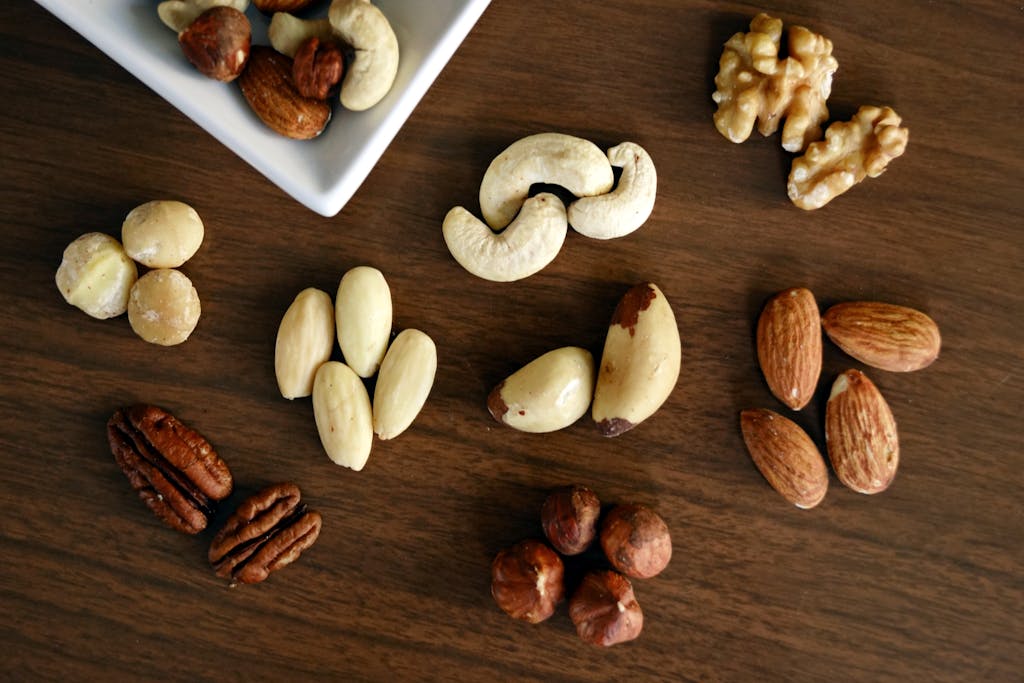
Conclusion
The power of hyaluronic acid in natural skincare cannot be overstated. As we’ve explored, this remarkable substance offers a myriad of benefits that cater to a wide range of skin concerns and types. From its unparalleled ability to hydrate and plump the skin to its role in supporting the skin’s natural barrier function, hyaluronic acid has rightfully earned its place as a staple in modern skincare routines.
The versatility of hyaluronic acid is particularly noteworthy. Whether you’re combating the signs of ageing, struggling with dry or sensitive skin, or simply looking to maintain a healthy, radiant complexion, this ingredient has something to offer. Its gentle nature makes it suitable for even the most sensitive skin types, while its compatibility with other active ingredients allows for seamless integration into complex skincare regimens.
However, it’s important to remember that effective skincare is about more than just applying products. The holistic approach to skin health includes not only topical treatments but also a balanced diet rich in natural sources of hyaluronic acid and its precursors. By nourishing your skin from both the inside and outside, you can maximise the benefits of this wonder molecule.
As with any skincare ingredient, consistency is key when it comes to reaping the full benefits of hyaluronic acid. While you may notice immediate improvements in skin hydration and texture, the long-term effects on skin elasticity, fine lines, and overall skin health will develop over time with regular use.
It’s also worth noting that while hyaluronic acid is a powerful ingredient, it’s not a magic solution for all skin concerns. It works best as part of a comprehensive skincare routine that includes proper cleansing, sun protection, and other targeted treatments as needed for your specific skin type and concerns.
Looking to the future, ongoing research continues to uncover new potential applications for hyaluronic acid in skincare and beyond. From its role in wound healing to its potential in addressing specific skin conditions, the full scope of hyaluronic acid’s benefits is still being explored.
In conclusion, whether you’re a skincare novice or a beauty aficionado, incorporating hyaluronic acid into your routine can be a game-changer. Its ability to provide intense hydration, support skin barrier function, and contribute to a more youthful appearance makes it a valuable addition to any skincare arsenal. By understanding how to properly use hyaluronic acid and combining it with a healthy lifestyle and balanced skincare routine, you can unlock its full potential for healthier, more radiant skin.
As you embark on your journey with hyaluronic acid, remember that everyone’s skin is unique. Pay attention to how your skin responds, be patient, and don’t hesitate to consult with a dermatologist or skincare professional if you have specific concerns or questions. With the right approach, hyaluronic acid can be your secret weapon in achieving the healthy, glowing skin you desire.




